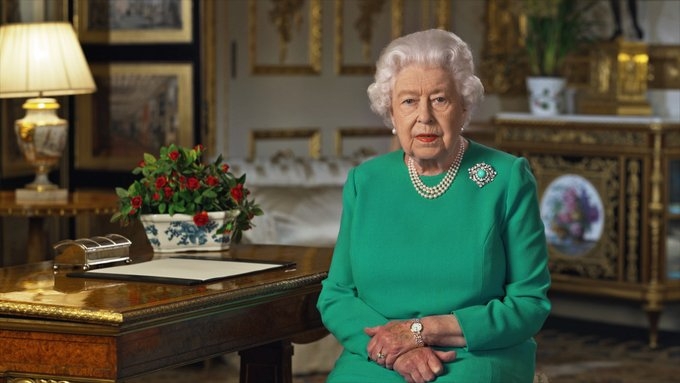Once upon a time, a speech by the Queen had the capacity to surprise. Only a handful of her trusted advisors would have been privy to its content prior to its delivery. Elizabeth, a Head of State who has thrived for decades by remaining above the political fray, didn’t use to indulge in extensive pre-briefing. Such tactics were the preserve of those who relied on the ballot box – not an accident of birth, for their position.
This status quo is yet another victim of Covid-19. As we settled down to watch the monarch momentarily delay an episode of the Antiques Roadshow, we had a sense of what she would say. One fifth of the words she uttered had already been shared with the broadcasters and Sunday newspapers. Intentionally or otherwise, criticism of the government’s response to the pandemic, and the election of a new Labour leader, had to share precious column inches with detailed coverage of how the Queen would attempt to rally a nation.
It’s a task she undertakes sparingly. Aside from her Christmas Broadcasts, addresses to the nation can be counted on one hand – a striking statistic, given she’s reigned for 68 years. The infrequent nature adds to their impact. In its significance, this one will be ranked alongside the live televised speech she made ‘as a grandmother’ the day before the funeral of Diana, Princess of Wales. Then, her family was in trouble for appearing to be out of touch and a nation was mourning. Now, a world in crisis was listening to a woman who has weathered her fair few.
A world in crisis was listening to a woman who has weathered her fair few.
This was an isolated Queen who spoke to us. Almost alone, in a room in a castle, aside from a cameraman wearing protective gear. The nearly 94-year-old needs to be shielded like all others of her age.
She eschewed the personal in what was an assured performance. She didn’t refer to the fact her son and heir was one of those who caught and recovered from the virus.
Instead, the focus was driven by one of her key roles, as Head of Nation – a rallying figure in times of trouble. She acknowledged people’s suffering and loss; praised those in the caring professions and carrying out essential roles; and expressed hope that the attributes of ‘self-discipline, of quiet good-humoured resolve and of fellow-feeling’ would define our present and our future.
And she played her ace card – her longevity. The Queen’s first ever broadcast was 80 years ago, when the fourteen-year-old princess, with her sister Margaret by her side, delivered an upbeat message about victory to children evacuated overseas.
By invoking the memory of that 1940 wartime broadcast (designed to influence adult opinion at the time in the United States), the nonagenarian monarch was subtly providing us with historical context against which to measure our current lockdown and self-isolation, and to appreciate, as she put it, that it was ‘the right thing to do’. What she left unsaid was that the privations of her wartime generation were greater and went on for longer.
She ended, as she had to, on an upbeat note. She channelled Vera Lynn as she spoke of how we would succeed in our battle with coronavirus. Better days will return, she told us, ‘we will be with our friends again; we will be with our families again; we will meet again’.
In the briefing before the speech was delivered, a Downing Street official set a high bar. Hearing from her, newspapers were told, was an important way ‘of helping to lift the nation’s spirits’. It’ll be for her citizens and her subjects to judge if she succeeded in achieving that goal. While assessing their mood, post the briefest of regal interventions, many may pause and reflect on a rather poignant fact.
Given the rarity of these non-Christmas, Elizabeth broadcasts to the nation, there may not be another one.
Peter Hunt is a former BBC diplomatic and royal correspondent. He tweets @_PeterHunt






Comments